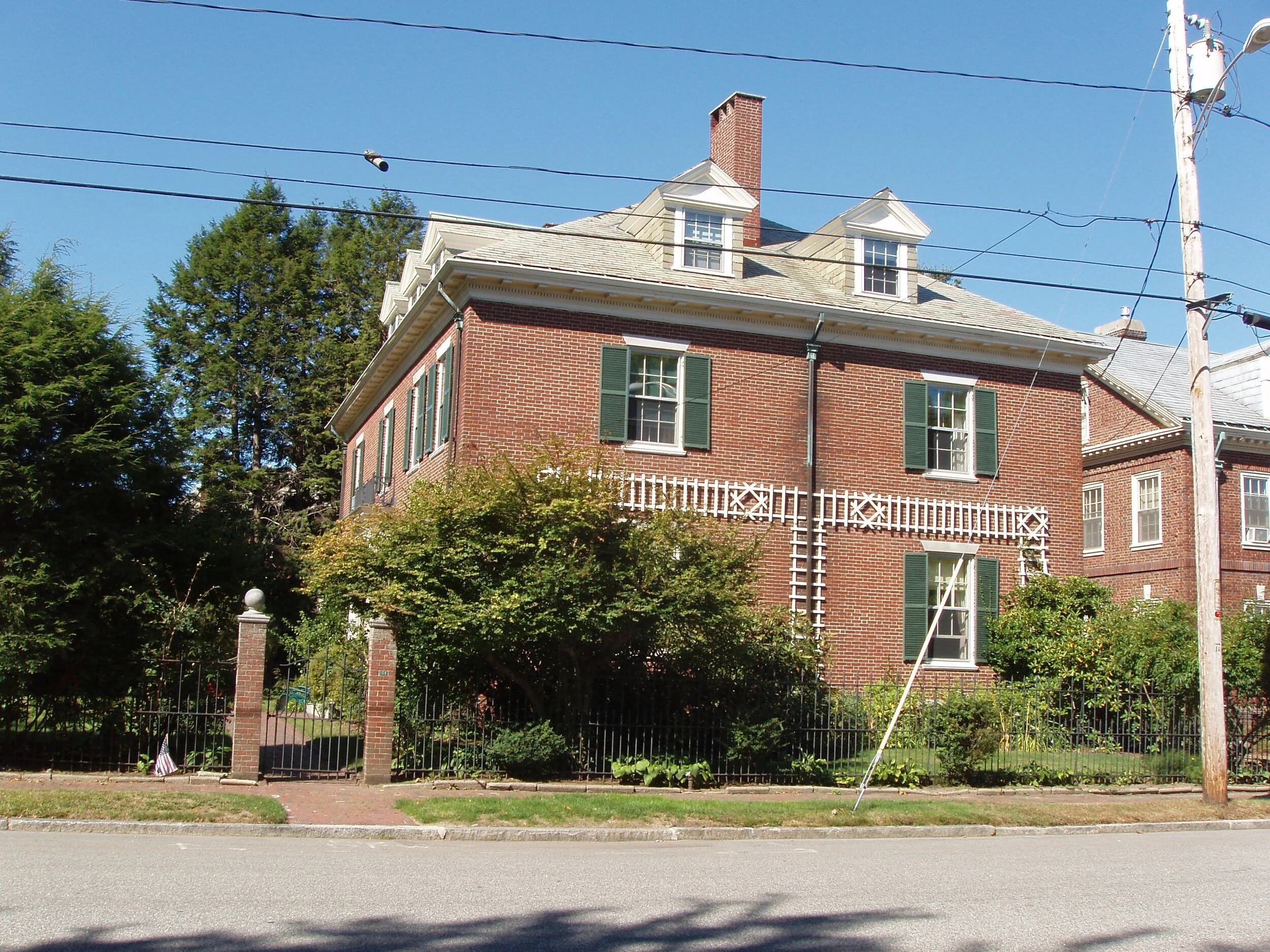By Kate Burch
One hundred years ago, Maine became the 19th state to ratify the Nineteenth Amendment. To celebrate the centennial, meet some prominent Portland suffragists and see their homes:
Augusta Merrill Barstow Hunt
165 State Street
Augusta Hunt (1842-1932) was the first woman to cast a ballot in a Portland election. She and her husband, sugar refiner George Hunt, lived and raised their children in this house on State Street (now the Portland Magazine building, formerly the home of Greater Portland Landmarks!).
A women’s rights and suffrage activist and a social reformer, Augusta was president of the Portland chapter of the Women’s Christian Temperance Union for 15 years. Under her leadership, the WCTU established a day nursery, free kindergarten, and prison reform for female offenders. She successfully advocated for laws that gave mothers equal rights with fathers in the guardianship of children and allowed the election of women to school boards.
Augusta also served as president of the Home for Aged Women and the Portland Woman’s Council, and she was one of the first women admitted to the Maine Historical Society. She is the great-great-grandmother of actress Helen Hunt.
Florence Brooks Whitehouse
108 Vaughan Street
Florence Brooks Whitehouse (1869-1945) was a feminist and suffragist who fought for women to be fully equal with men. Born in Augusta, she moved with her husband Robert Treat Whitehouse to 108 Vaughan Street in Portland in 1894. They had a loving and egalitarian marriage, and Robert, an attorney, was the president of the Men’s Equal Suffrage League of Maine.
Florence founded the Maine Branch of the National Woman’s Party, a radical suffrage group created by Alice Paul that drew on the militant methods used by British suffragists. She helped establish suffrage groups in other cities throughout Maine, and worked closely with organized labor to campaign for women’s right to vote.
Florence supported many other social and political causes including a mother’s pension, Social Security, labor laws, the Equal Rights Amendment, and international disarmament. She was also an artist and writer who wrote two romance novels and co-authored several plays with her husband.
Lillian M.N. Stevens
1282 Westbrook Street
Lillian Stevens (1843-1914) was a temperance worker and social reformer who helped launch the Maine chapter of the Woman’s Christian Temperance Union. She began a career as a schoolteacher at age 16 after her father died of consumption. At 22, she married salt and grain wholesaler Michael Stevens and moved into his family home in Stroudwater, at the corner of Westbrook and Congress Streets. Michael was her partner and ally, joining her in advocating for social reform and women’s suffrage.
Lillian was a skilled executive and speaker who became president of the National Women’s Christian Temperance Union in 1898. Along with her temperance work, she was advocated for women’s suffrage and other humanitarian causes. She established the first “safe house” in the country for abused women and children, successfully lobbied for prison reform, and campaigned for animal welfare.
The Little Water Girl statue at the Portland Public Library is a memorial to Lillian Stevens, representing the WTCU’s effort to establish public drinking fountains and provide water as an alternative to liquor.
The University of Southern Maine includes some of these sites on their Portland Women’s History Trail. Learn more about the Maine Suffrage Centennial, and other events and exhibits commemorating the anniversary, here.







